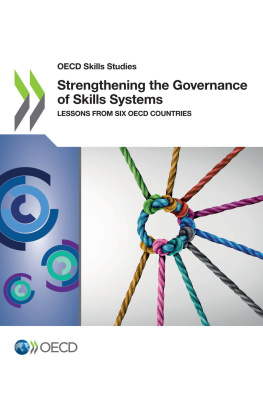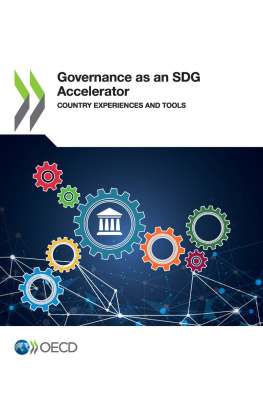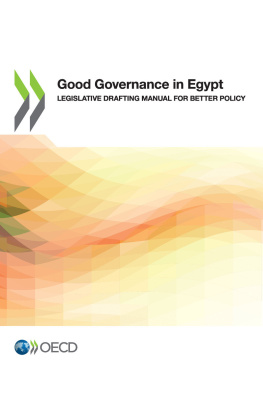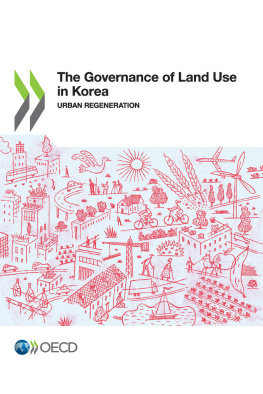OECD - Strengthening the Governance of Skills Systems
Here you can read online OECD - Strengthening the Governance of Skills Systems full text of the book (entire story) in english for free. Download pdf and epub, get meaning, cover and reviews about this ebook. year: 2020, publisher: OECD Publishing, genre: Politics. Description of the work, (preface) as well as reviews are available. Best literature library LitArk.com created for fans of good reading and offers a wide selection of genres:
Romance novel
Science fiction
Adventure
Detective
Science
History
Home and family
Prose
Art
Politics
Computer
Non-fiction
Religion
Business
Children
Humor
Choose a favorite category and find really read worthwhile books. Enjoy immersion in the world of imagination, feel the emotions of the characters or learn something new for yourself, make an fascinating discovery.
Strengthening the Governance of Skills Systems: summary, description and annotation
We offer to read an annotation, description, summary or preface (depends on what the author of the book "Strengthening the Governance of Skills Systems" wrote himself). If you haven't found the necessary information about the book — write in the comments, we will try to find it.
OECD: author's other books
Who wrote Strengthening the Governance of Skills Systems? Find out the surname, the name of the author of the book and a list of all author's works by series.
Strengthening the Governance of Skills Systems — read online for free the complete book (whole text) full work
Below is the text of the book, divided by pages. System saving the place of the last page read, allows you to conveniently read the book "Strengthening the Governance of Skills Systems" online for free, without having to search again every time where you left off. Put a bookmark, and you can go to the page where you finished reading at any time.
Font size:
Interval:
Bookmark:
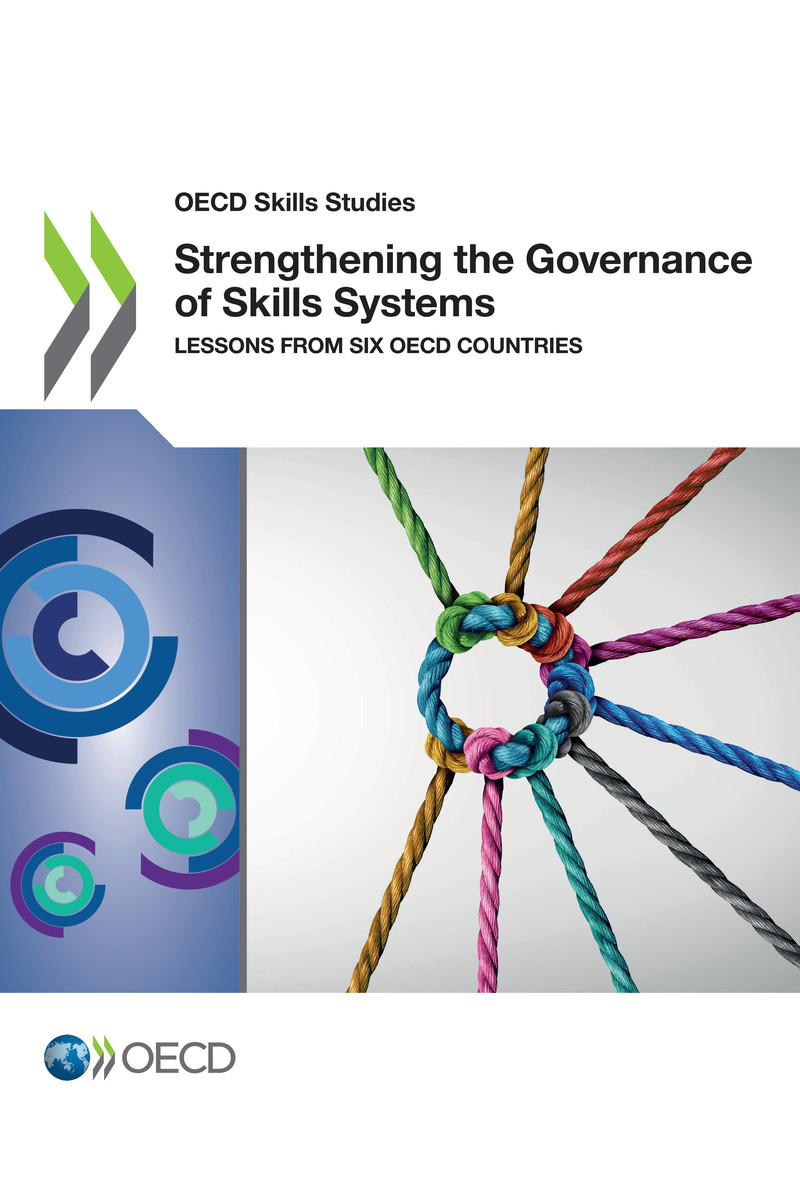
OECD (2020), Strengthening the Governance of Skills Systems: Lessons from Six OECD Countries , OECD Skills Studies, OECD Publishing, Paris, https://doi.org/10.1787/3a4bb6ea-en .
The governance of skills systems is complex and poses many challenges for governments. Located at the intersection of education, labour market, industrial and other policies, skills policies require the co-ordinated involvement and commitment of governments, employers, trade unions, workers, teachers, students and others to be successful.
The complexity of governance arrangements of skills systems is likely to continue. Megatrends such as globalisation, technological progress and demographic change are putting pressure on skills systems to ensure that all members of society are equipped with the skills necessary to thrive in an interconnected world. This is taking place in the context of a general decentralisation trend among governments, which has the potential to further increase the number of actors involved.
Strengthening the governance of skills systems, developing relevant skills over the life course and using skills effectively in work and society were the three broad components of the updated OECD Skills Strategy 2019 . The strategy identified four main challenges to strengthening the governance dimension of skills systems: 1) promoting co-ordination, co-operation and collaboration across the whole of government; 2) engaging with stakeholders throughout the policy cycle; 3) building integrated information systems; and 4) aligning and co-ordinating financing arrangements.
This report, Strengthening the Governance of Skills Systems: Lessons from Six OECD Countries , presents concrete examples of how governments with different welfare state and labour market regimes, as well as different political institutions and cultures, have addressed one or several of these challenges. It details six case studies in selected OECD countries: Estonia, Germany, Korea, Norway, Portugal, and the United States, each focusing on a particular policy or sector within the domestic skills system. Based on the evidence, the report presents a number of general policy recommendations for strengthening the governance of skills systems, together with a practical self-assessment tool for policy makers and stakeholders.
Collecting and sharing evidence of the different ways in which governments have approached the challenges of governing their skills systems holds potential for further improvement and collaborative peer learning. The OECD will continue to work with countries to design, develop and deliver better skills policies for better lives in a rapidly changing world.
The preparation of this report was led by the OECD Centre for Skills (SKC) in collaboration with a team of primary authors.
Chapter 1 - Introduction and theoretical framework, Chapter 3 - Case study: The Alliance for Initial and Further Training in Germany and Chapter 8 - Conclusion and general policy recommendations were written by Marius R. Busemeyer, Professor of Political Science and a Speaker of the Excellence Cluster The Politics of Inequality at the University of Konstanz in Germany. His work centres on the comparative political economy of education and training in OECD countries, the role of public opinion in education reforms and the politics of inequality.
Chapter 2 - Case study: The Estonian Education Information System (EHIS) and Chapter 4 - Case study: Lifelong learning in Korea were written by Gina Di Maio, Junior Researcher at the International Research Cluster Governance in Vocational and Professional Education and Training (GOVPET). She is based at the University of St. Gallen in Switzerland. Her research focuses on further training and the institutionalisation of social equality and economic efficiency in training.
Chapter 6 - Case study: Portugals National Agency for Qualification and Vocational Education and Training (ANQEP) and Chapter 7 - Case study: Massachusetts (United States) Early Warning Indicator System (EWIS) were written by Lina Seitzl. She is a Junior Researcher at the Political Science Department of the University of St. Gallen. She works at the International Research Cluster GOVPET. Her work focuses on employer co-ordination in education systems and the effect of digitisation on skills demands.
Chapter 5 - Case study: Norways Skills Policy Council and Future Skills Needs Committee was written by Daniel Unterweger, Junior Researcher at the International Research Cluster GOVPET. He is based at the University of St. Gallen in Switzerland. His current research projects examine the integration of multinational companies and the role of the state in dual vocational and education training (VET).
Andrew Bell, Ricardo Espinoza, Ben Game and Sam Kim (SKC) shaped the research design and scope, and provided guidance and comments to the research team. Laura Reznikova (SKC) contributed analysis, drafting, and editing and co-ordinated the production process. Cuauhtmoc Rebolledo-Gmez (International Service for Remunerations and Pensions) and Serli Abrahamoglu (SKC) provided statistical support. Written contributions and comments were provided by Najung Kim, Dami Seo and Sunhwa Kim (SKC). Andrew Bell (SKC) provided analytical guidance and supervision.
Montserrat Gomendio, Head of the OECD Centre for Skills (SKC), supervised the project and provided comments, while Stefano Scarpetta (Director for Employment, Labour and Social Affairs, OECD) (ELS) and Mark Pearson (Deputy Director for Employment, Labour and Social Affairs, OECD) provided strategic oversight and comments.
Vronique Qunehen and Jennifer Cannon (SKC), Lauren Thwaites (Public Governance) and Lucy Hulett (ELS) provided invaluable support for mission organisation, report layout and design, and publication planning. Elizabeth Zachary provided proofreading and editorial support. Bohyun Kim supported missions to Korea by providing ad hoc interpretation and translation into Korean.
Font size:
Interval:
Bookmark:
Similar books «Strengthening the Governance of Skills Systems»
Look at similar books to Strengthening the Governance of Skills Systems. We have selected literature similar in name and meaning in the hope of providing readers with more options to find new, interesting, not yet read works.
Discussion, reviews of the book Strengthening the Governance of Skills Systems and just readers' own opinions. Leave your comments, write what you think about the work, its meaning or the main characters. Specify what exactly you liked and what you didn't like, and why you think so.

